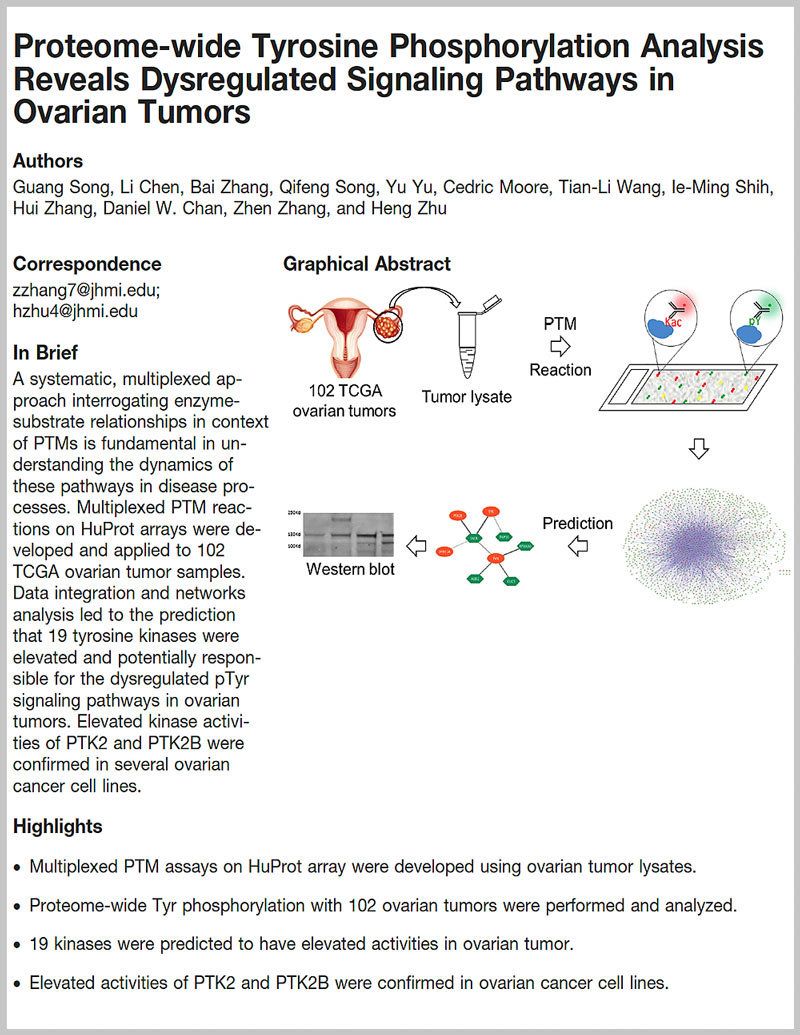- Follow Us
CDI Labs Services for
Post-translational Modification Specificity Testing
HuProt can test and validate post-translational modifications (PTMs).
REQUEST INFOHuProt Can Play a Key Role in Drug Discovery
PTM specificity testing is crucial for validating binding to modified forms of proteins.
Post-translational modifications (PTMs) are chemical modifications that occur on proteins after they have been synthesized. PTMs regulate protein activity, localization, and interactions by altering protein structure, stability, and interactions with other molecules. For example, phosphorylation can regulate enzyme activity, while ubiquitination targets proteins for degradation. As PTMs play crucial roles in protein function, targeting PTMs has emerged as a promising strategy in drug discovery. PTM specificity testing is crucial for validating binding to modified forms of proteins.
In the featured publication below, multiplexed PTM reactions on HuProt™ microarrays were developed and applied to 102 TCGA ovarian tumor samples. Data integration and networks analysis led to the prediction that 19 tyrosine kinases were elevated and potentially responsible for the dysregulated pTyr signaling pathways in ovarian tumors. Elevated kinase activities of PTK2 and PTK2B were confirmed in several ovarian cancer cell lines.
Proteome-wide Tyrosine Phosphorylation Analysis Reveals Dysregulated Signaling Pathways in Ovarian Tumors
Abstract
A systematic, multiplexed approach interrogating enzyme-substrate relationships in context of PTMs is fundamental in understanding the dynamics of these pathways in disease processes. Multiplexed PTM reactions on HuProt arrays were developed and applied to 102 TCGA ovarian tumor samples. Data integration and networks analysis led to the prediction that 19 tyrosine kinases were elevated and potentially responsible for the dysregulated pTyr signaling pathways in ovarian tumors. Elevated kinase activities of PTK2 and PTK2B were confirmed in several ovarian cancer cell lines.
VIEW PAPERCDI Labs Advantages
HuProt Sample Requirements
Human serum or plasma
One 20 μL per sample
Antibody isolates
10 μg per sample (concentration 0.1 mg/mL)
Human cerebrospinal fluid (CSF)
Minimum 1.5 mL per sample
Protein / peptide / small molecule
10 μg per sample (concentration 0.1 mg/mL)
RNA
1 mL per sample (concentration 2 μM)

